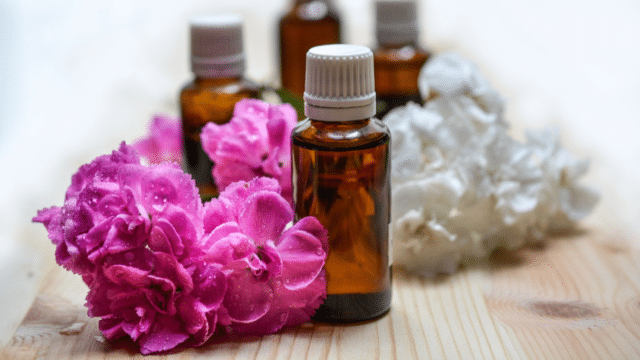4 Practical Tips for Making Homemade Perfume

The global essential oil business is expected to double from $6 billion in 2014 to $12 billion by 2022. The growth of essential oils can be traced to the flexibility in their use. Oils to help with insomnia can be applied directly to pillows and bedsheets while oil diffusers can be used to evaporate oil directly into the air to scent a room or entire home.
One place that you may not have thought about using essential oils is on your body. Essential oils can be included in homemade perfumes that can be tailored to create a unique scent for your particular preferences and tastes.
While there are not many rules about making homemade perfume, there are some steps you can take that will help you to develop and refine your unique scent. Here are some practical tips for making homemade perfume:
Study Essential Oils
There are many resources online about essential oils. Many of these references can help you to understand the origin and health benefits of the essential oils you want to use. However, like other natural beauty recipes, when making your homemade perfume, you should be aware of the health effects, both positive and negative, of essential oils. For example, rosemary produces a wonderful herbal scent, but it can cause a rash or serious allergic reaction in people who are sensitive to pine trees.
In addition to triggering allergies, some essential oils are known to pose potential health risks for some users. Herbalists recommend that pregnant women avoid ylang-ylang essential oil, for example. Keep in mind that herbs were used for millennia for their medicinal properties, so do not be surprised if your research reveals that some of the essential oils that you use may have unintended side effects.
This applies to carrier oils as well. Carrier oils are oils that are mixed with alcohol to provide a base that, well, carries the scented oils. Carrier oils are selected for their neutral or weak scent so that the scented oils can shine through. Carrier oils also help to stabilize the scented oils so that they do not evaporate from your skin too quickly. Common carrier oils include almond oil, avocado oil, jojoba oil, coconut oil, and grapeseed oil. Make sure you avoid carrier oils that may trigger a known allergy or sensitivity.
Start Small
Aside from tailoring a scent that is unique to you, one benefit of making homemade perfume is the cost savings compared to commercially-prepared perfumes. At tens or hundreds of dollars per ounce, commercial perfumes are one of the more expensive beauty products available.
However, this does not mean that DIY perfume is cheap. Anyone who has invested in essential oils has found that a few ounces can run upwards of $20 depending on the source of the oil.
Consequently, you may want to start small and scale up once you find a blend that appeals to you. For example, if you are mixing your homemade perfume in a two-ounce bottle, you may want to start with one ounce of carrier oil and alcohol, and add your scented oils with a dropper. Once you have achieved a scent that you like, you can double the recipe.
Learn About Perfume
The most complex perfumes have many layers, based on the prominence of the scents and how easily or quickly they evaporate at skin temperature. Top notes are the most volatile and evaporate quickly at skin temperature. These will be the first and most noticeable scents when the perfume is applied. Middle notes and base notes linger after the top notes have dissipated.
By reading up on which scented oils fall into which categories, you can find a combination of essential oils that fills in all the notes and has that complex perfume smell reminiscent of commercial perfumes.
Be Patient
Consider some of your favorite food recipes. Vegetable soup, for example, will evolve over time as the flavors mingle and blend. Homemade perfume is the same. The scent will evolve over time, sometimes mellowing and sometimes highlighting certain scents. Be patient and allow your homemade perfume to develop over a few weeks before deciding if the scent meets your tastes.
Homemade perfume is not alchemy. It is a recipe that can bring you endless enjoyment while you test and retest your creations.
